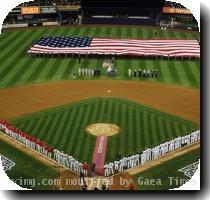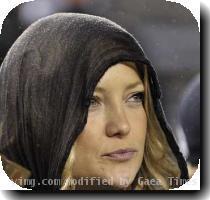Upon further review, expanded use of instant replay won’t be coming to a ballpark near you
By Jim Litke, APSaturday, October 31, 2009
‘You leave something alone if it’s working’
PHILADELPHIA — There is no better illustration of why baseball won’t expand its use of instant replay than Phillies manager Charlie Manuel’s answer to a question during off-day workouts about whether it should.
It dragged on for five paragraphs, 18 sentences and 403 words. The last seven were: “You leave something alone if it’s working.”
The funny thing is that advocates of instant replay rarely had a more persuasive argument for expanding the use of instant replay from boundary calls on home runs — fair or foul, in or out — to the basepaths. The umpiring this postseason has been awful and less than 24 hours earlier, in Game 2 of the World Series on Thursday night, both the Phillies and Yankees got hosed by decisions that were just plain wrong.
In the bottom of the seventh inning, with runners at first and second, New York’s Johnny Damon hit a line drive that first baseman Ryan Howard gloved. He then threw to shortstop Jimmy Rollins, whose tag of Jorge Posada at second turned it into a rally-killing, inning-ending double play.
Except that it wasn’t. Replays from several angles that were shown to a nationwide TV audience, but not the umpires who made the split-second call, revealed that the ball bounced off the dirt before it disappeared into Howard’s mitt.
In the top of the eighth, the Phillies likewise had runners at first and second when Chase Utley hit a grounder to second baseman Robinson Cano. He scooped it up and threw to shortstop Derek Jeter, whose pivot and throw from second were executed just in time to get Utley for yet another rally-killing, inning-ending double play.
Except that play wasn’t what it appeared to be, either. Replays clearly showed that Utley beat the throw at first.
Instead of bolstering the case for expanding instant replay, though, you can argue those two plays in quick succession did just the opposite. What they proved beyond the obvious — that umpires, being human, sometimes make mistakes — is that the breaks even out. Granted, they rarely even out that quickly or that neatly, but over time they do.
It’s almost impossible to prove, either way, but there’s little doubt most people inside the game believe it. Otherwise, it would have been changed long before now.
“We’ve been on the side of some calls, and we’ve been on the other side of some calls,” Yankees manager Joe Girardi said. “Each team has had to deal with that for years. Nobody is perfect out there. There are not enough eyes to see every play that takes place. We all know that.”
Apparently so. All but one of the half-dozen players from both teams who took part in a highly unscientific survey Friday opposed the expanded use of instant replay.
The shortest answer came from Jeter.
“I’m good,” he said.
Yankees reliever Phil Coke practically snorted his reply.
“These guys get it right so often it isn’t funny. … Joe Schmoe sitting on the couch at home sees them blow one and thinks, ‘I’d get that right.’ Sure you could. Try it sometime.”
Cole Hamels, Philadelphia’s Game 3 starter, was the only player in favor of greater use of instant replay, but quickly added, “only if they’re quick about it. The last thing we need is to slow the pace of the game.”
For that reason alone, it will not happen on Bud Selig’s watch. Never mind that the commissioner, like nearly every player surveyed, genuinely likes the idea that the “human element” — in all its glorious unpredictability — has been a part of the game’s lore forever. There’s a reason people know Don Denkinger’s name (hint: Game 6, 1985 World Series), not to mention Jeff Maier’s (Game 1, 1996 ALCS).
Besides, longer baseball games might be the only thing that scares him more than performance-enhancing drugs.
Girardi said he expected instant replay would be discussed again during the offseason. If, so, he offered a helpful guideline.
“If it was expanded, I would like to see an umpire in the booth that could make a call within 30 seconds,” he said, “which a lot of times would be quicker than a manager running out there.”
Jim Litke is a national sports columnist for The Associated Press. Write to him at jlitke(at)ap.org
Tags: Doping, New York, New York City, North America, Pennsylvania, Philadelphia, Phillies And Yankees, Professional Baseball, United States

